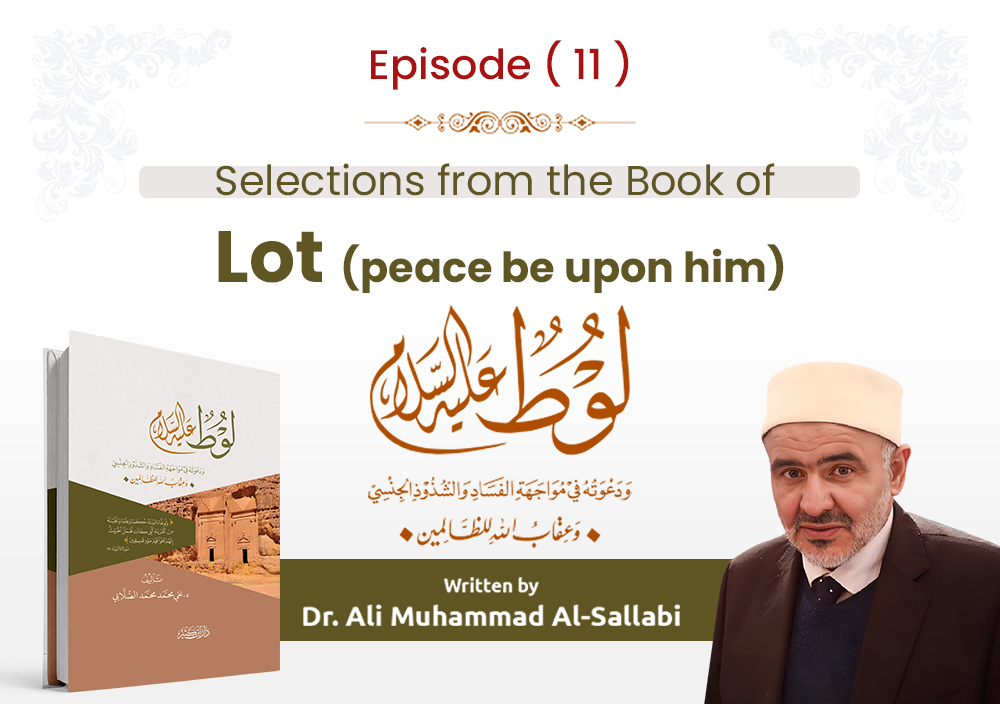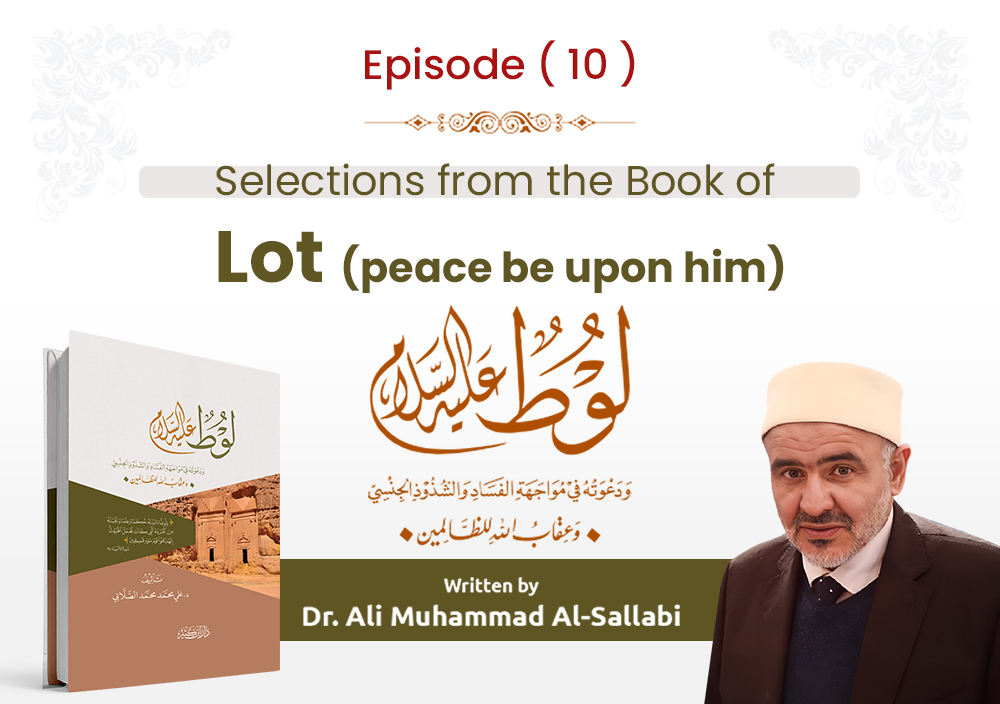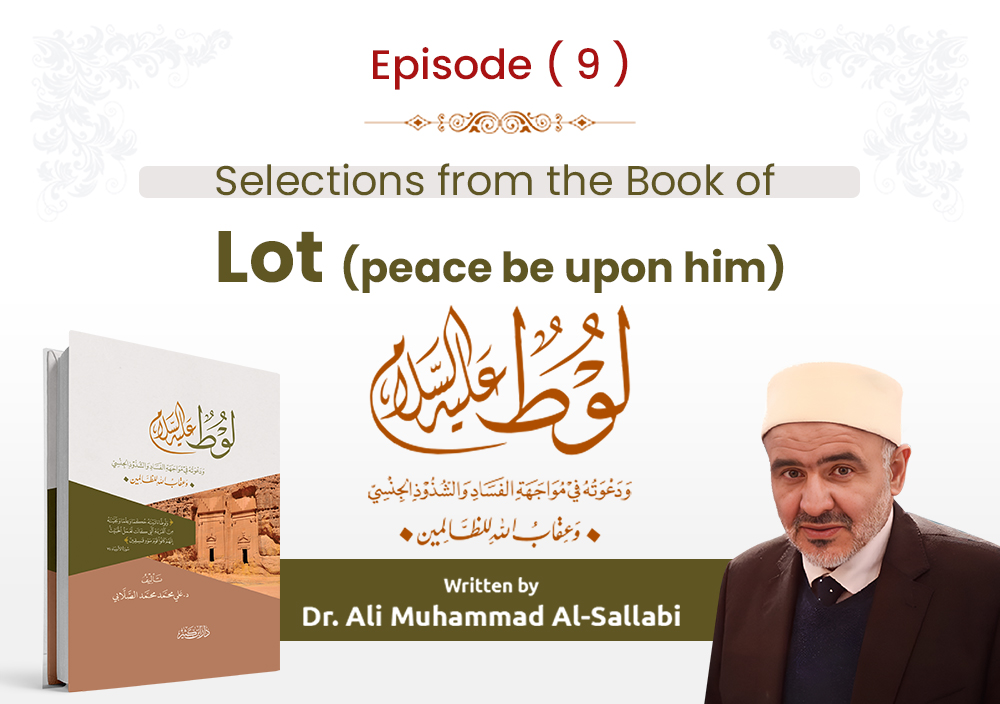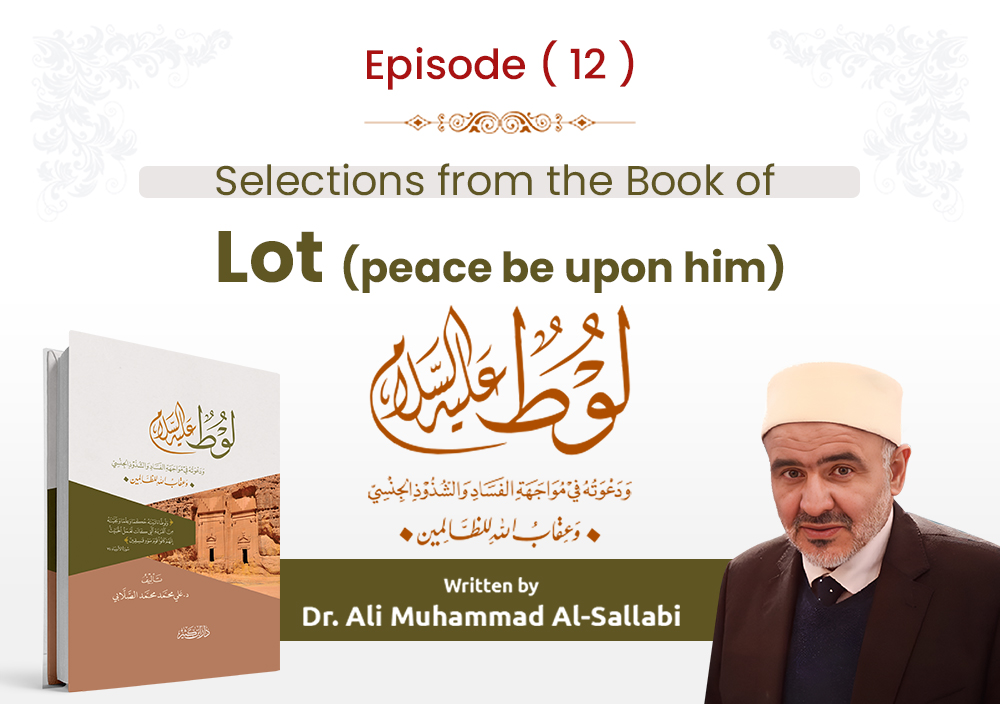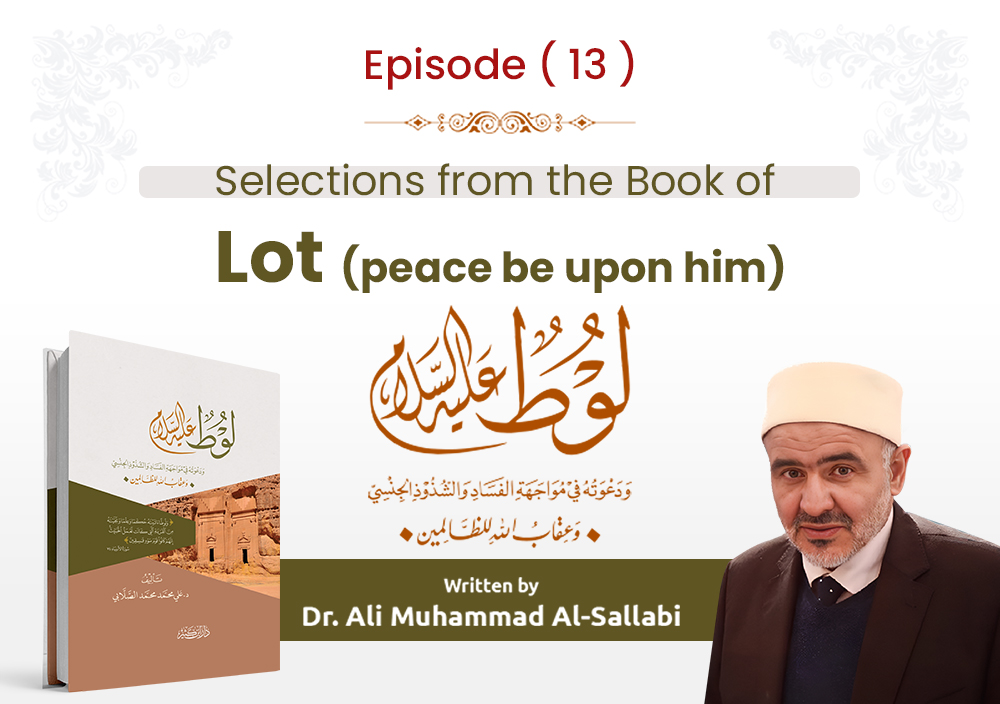Allah Almighty sends Messengers to reform and purify souls
Selections from the Book ‘’Lot (peace be upon him) and his Mission in Confronting Corruption and Sexual Deviance’’ …
Written by Dr. Ali Muhammad al-Sallabi...
Episode (11)
The messengers (peace be upon them) came to rectify souls, purify them, and warn them against sin. They were sent to guide people on the straight path, instruct them in the right way, direct them towards virtuous ethics, and deter them from blameworthy vices. Allah, exalted be He, says: {It is He who has sent among the unlettered [Arabs] a Messenger from themselves reciting to them His verses and purifying them and teaching them the Book [i.e., the Qur’an] and wisdom [i.e., the sunnah] - although they were before in clear error –} [Al-Jumu'ah:2].
Sheikh Ibn Taymiyyah clarified the need of humans for the mission of the messengers in various places throughout his writings and treatises. Among them is his statement: "The message is essential for humanity, they cannot do without it, and their need for it surpasses their need for everything else. The message is the soul, light, and life of the world. What reformation can there be in the world if it lacks the soul, life, and light? The world is a cursed darkness except for what is illuminated by the sun of the message. Similarly, the servant, if the sun of the message does not shine in his heart and he does not receive life and soul from it, then he is in darkness, he is among the dead. The Almighty said: {And is one who was dead and We gave him life and made for him light by which to walk among the people like one who is in darkness, never to emerge therefrom?} [Al-An'am: 122]. This is the description of the believer: once dead in the darkness of ignorance, Allah revived him with the spirit of the message and the light of faith, setting for him a light to walk among people. As for the disbeliever, he remains dead-hearted in darkness".
And indeed, the message is essential for the individual's well-being in both their worldly life and their hereafter. Just as there is no salvation in the hereafter without following the message, there is also no proper order for one's worldly life without adhering to the message. A person is in dire need of the Sharia (Islamic law), as they are constantly engaged in two types of actions: actions to acquire what benefits them, and actions to avert what harms them. The Sharia is the light that clarifies what benefits and harms them. The Sharia is Allah's light on Earth, His justice among His servants, and His fortress wherein those who enter are safe. The purpose of the Sharia is not merely to distinguish between harmful and beneficial things through sensory perception, as even mute animals can do this. For instance, a donkey and a camel can differentiate between barley and dirt. Instead, the Sharia helps differentiate between actions that harm or benefit a person in their worldly life and the hereafter. This includes the benefits of faith, monotheism, justice, righteousness, honesty, benevolence, trustworthiness, chastity, courage, forbearance, patience, enjoining good and forbidding evil, maintaining family ties, honoring parents, kindness to slaves and neighbors, fulfilling rights, sincerity in worship, reliance on Allah, seeking His assistance, accepting His decrees, submitting to His will, befriending His allies, opposing His enemies, fearing Him in public and private, drawing closer to Him by performing obligatory acts, avoiding prohibitions, hoping for rewards from Him, believing and affirming what His messengers conveyed, and obeying all their commands. These lead to the individual's welfare and happiness in both this world and the hereafter. Conversely, neglecting these principles results in misery and harm in both worlds.
Without the message of the prophets, human reason would not have been able to discern the detailed aspects of what is beneficial and harmful in both this world and the hereafter. One of Allah's greatest blessings and favors upon His servants is that He sent them messengers, revealed His Books, and clarified the straight path for them. Without this guidance, humans would be like livestock, or even worse. Those who accept Allah's message and adhere to it are among the best of creation, while those who reject it and deviate from it are among the worst, in a state worse than dogs, pigs, and brute animals.
The need for messengers surpasses all other needs, and the necessity of their sending is paramount. This is clearly articulated by Ibn Taymiyyah, who said: "The need of the people of the earth for the messenger is not like their need for the sun, the moon, the wind, and the rain, nor like the need of a human for his life, nor like the need of the eye for its light or the body for food and drink, but it is even greater and more crucial than all that can be imagined or considered. The messengers are intermediaries between Allah and His creation in His commands and prohibitions, and they are the ambassadors between Him and His servants".
The necessity for messengers among the servants is unparalleled, and their need for the bringers of glad tidings and warners is unmatched. The essence of the prophets' mission is a sincere call to Allah, emphasizing His exclusive right to worship. This mission serves as a test for humanity's sincerity in their intentions, their capacity to fulfill the duties of servitude, and their dedication to monotheism. It also aims to cultivate the earth, striving in its paths to call to Allah alone, without any partners, and to lead people from misguidance to guidance, and from the depths of darkness to the lights of truth and faith.
Ibn al-Qayyim al-Jawziyyah said: "There is no way to happiness and success, neither in this world nor in the Hereafter, except through the messengers. There is no way to know the good and the bad in detail except through them, and Allah's pleasure can never be attained except through them. Following them is what distinguishes the guided from the misguided. The necessity for them is greater than the necessity of the body for its soul, the eye for its light, and the soul for its life. What do you think of someone who, if deprived of their guidance and what they brought even for a blink of an eye, their heart would become corrupt, like a fish that leaves the water and is placed in a pan? The state of a servant when their heart is separated from what the messengers brought is like this, but even greater. However, only a living heart feels this; a dead wound feels no pain".
The messengers are leaders for humanity, guiding them on the path of goodness and leading them to the way of righteousness, while steering them away from the ways of temptation and misguidance. They are role models for people in their morals, worship, and way of life. Allah Almighty has commanded following them and walking in their path, as He said: {Those are the ones whom Allah has guided, so from their guidance take an example} [Al-An'am: 90].
- Ali Muhammad al-Sallabi, Lot (peace be upon him) and his Mission in Confronting Corruption and Sexual Deviance, pp. 57-60.
- The Collection of Fatwas, Ibn Taymiyyah, 19/199-200.
- Book of Prophets, Ibn Taymiyyah, 1/27.
- Zad al-Ma’ad fi Huda Khair al-Ibbad, Ibn Qayyim al-Jawziyyah, Al-Risala Foundation, Beirut, Lebanon, 28th edition, 1415 AH, 1/69.
- The Message of the Prophets from Shuaib to Jesus, Omar Ahmed Omar, Dar Al-Hikma for Printing, Publishing and Distribution, Cairo, 1st edition, 1997 AD, 1/7.
For further information and review of the sources for the article, see:
The Book of ‘’Lot (peace be upon him) and his Mission in Confronting Corruption and Sexual Deviance’’ on the official website of Sheikh Dr. Ali Muhammad al-Sallabi:


